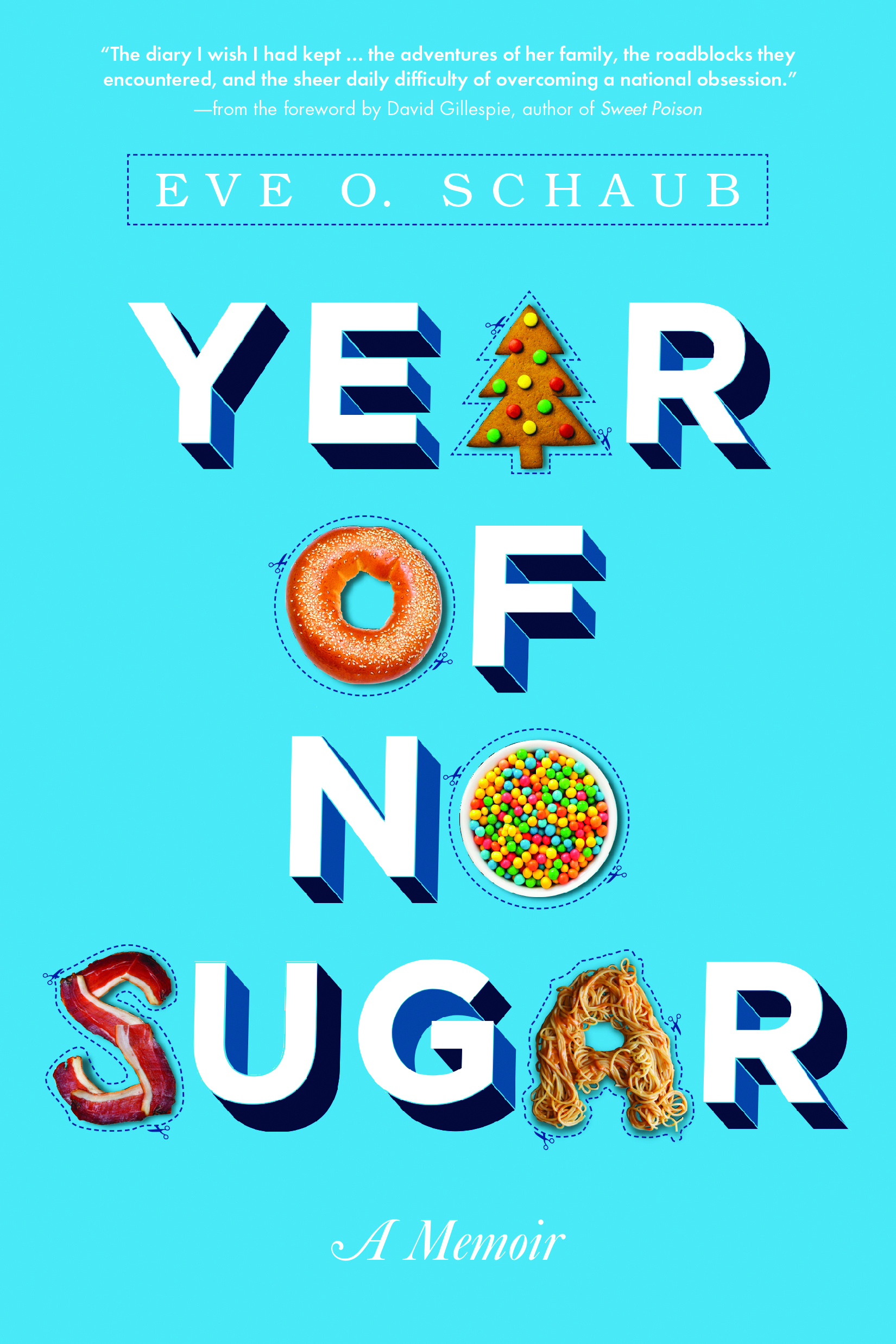The author is a Vermonter who loves maple syrup as much as I, and actually convinced her entire family (consisting of a husband and two daughters old enough to count the cost) to abstain from added fructose for an entire year.
The book is entertaining and interesting. I'm not finished with it yet, and I don't know if I could give it the two-thumbs-up simply because the author seems to have a lot of anxiety about giving up sugar. (I fear some might read it and say, 'this giving up sugar thing is just too hard so I might as well have a cookie.') So the jury's out on the book, but the author is witty and insightful, and for my part, I'm enjoying it. Author Eve Schaub thinks about things. I like people who think about things.
In particular, I'm really enjoying how she details the experience of being counter-cultural. This is probably the main reason I was unwilling to give up something like sugar in the past--simply because sugar is such a huge part of our society. To completely abstain means disconnecting from people on some level. Yes, health is important, but we're all going to die someday (shocking, but true.) I can't see myself, or my children, being the odd-man-out at birthday parties or other opportunities to connect with people in our community simply because sugar is bad for us. When I die, I would rather have people say, 'she engaged with people and loved them well.' Not 'she was really healthy. And now she's dead.'
Swimming against the cultural stream is difficult, and one area where we have struggled is Sabbath-keeping. We are Christians, and as such are called to remember the Sabbath and keep it holy. Not because it's the law, from which we have been freed, but it's meant for worship, as well as for our blessing and rejuvenation. When I was a child growing up in a blue-law state, nothing was open on Sundays. So we went to church, unlike many (most?) of our neighbors in secular New England, and then we had a nice dinner. And then we hung out.
Over the last 30 years or so, something changed. Now everything's open on Sunday. Everything... but in Massachusetts you still can't buy alcohol on Sundays--which many describe as being a 'wicked pissah.' And somehow I just went with the flow. On the way home from church, I'd stop at the market or pick up the dry cleaning.
That is, until I moved to France.
Oh, the French.... how ironic that the righteously secular, nearly universally unchurched French would be so incredibly good at Sabbath-keeping! It's very easy to take a day of rest on Sundays in France. The boulanger and florist are open for a few hours in the morning so you can get your bread and flowers to take to grandmother's house for the leisurely, three-hour dejuener you will enjoy. But apart from that nothing is open except restaurants. In fact, it is the law in France that nothing else is open on Sundays. It is the national day of rest. Everyone takes naps in the afternoons and goes for walks. It's delightful, and I grew to love it.
Darling Son #1, in the bum-up napping position.
I don't know how they sleep that way, but they do.
I don't know. But I still try. And this is how:
- Sabbath keeping requires planning. Years ago I read a wonderful book called The Ladies' Auxiliary, about an orthodox Jewish community. The author detailed all that was required of the women to prepare for the Sabbath, a furious effort that had to be completed by sundown on Friday.
- To keep a Sabbath, you need to work the other six days. I try to avoid non-essential chores on Sundays. Shopping and laundry are done beforehand, unless there is some dire emergency for milk or clean clothes.
- Meals are simple. In nicer weather, the Darling Husband will grill something, or I'll make something the day before that we can just heat up.
- If we have company, we like to do it on Sundays. Saturdays are for errands and chores. Sundays are for fellowship. Cooking an elaborate dinner and the clean-up it requires is not restful (to me), so we keep it simple. It's about hospitality, visiting, sharing what we have.
- One person's rest can be another's work. Personally, I will exercise on the Sabbath, because for me, that is joy, rejuvenation and worship. Not that I worship the exercise, but I always find myself thanking my Creator in my lalala bliss that I can move and sweat and breathe. For me, it's restful. It might not be for someone else.
Rest is important. It's how we are healed. It's when muscles repair and minds wind down. It's when we reconnect with our people. We're still working out how to keep the Sabbath in our non-restful culture. As the small people get a little older, new challenges present themselves. Some Sundays feel anything but restful, but we keep trying. We need rest and fellowship. They are as important for health as exercise and, well, rationing maple syrup.


No comments:
Post a Comment